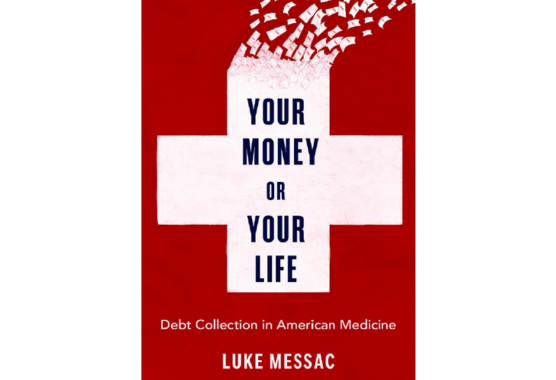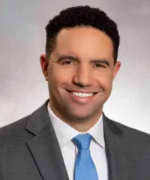CHASM Speaker Series
The Center for Health Action and Social Medicine will host virtual and in-person events at the Davis and Sacramento campuses.

You're invited to join the Center for Health Action and Social Medicine (CHASM) Speaker Series for special lectures with Luke Messac, a physician at Brigham and Women’s Hospital and an instructor in emergency medicine at Harvard Medical School. The events will be held virtually via Zoom and in-person at the UC Davis campuses in Sacramento on April 1 and in Davis on April 2. Learn more about the lectures and speaker below.
Though medical debt has long been a feature of American medicine, collection practices have become, in the last half-century, far more aggressive. Whereas patients and physicians once engaged in personal negotiations about repayment, today patients can find themselves in court, and even in jail, if they cannot pay their bills. The growth of the medical debt collection industry was made possible by changes in health insurance design, social policy, hospital charity care, and health care finance in ways that placed patients, and especially low-income patients, at risk of both financial ruin and legal peril. This talk explores the sources of today's aggressive medical debt collection practices, their consequences for patients and for health care providers, and possible solutions.
Your Money or Your Life: Debt Collection in American Medicine
Tuesday, April 1, 2025
12:30-1:30 p.m.
Medical Education Building, Room 2222
4610 X St.
Sacramento, CA 95817
Medical Debt Collection and the Financialization of Care
Wednesday, April 2, 2025
12–1 p.m.
Hart Hall, Room 3201
301 Shields Avenue
Davis, CA 95616
Medical debts were once the subject of personal negotiations between physicians and their patients, but today they have become tradable securities entirely shorn from clinical relationships. The medical debt crisis has garnered headlines in recent years, as have aggressive debt collection practices and miserly financial assistance policies by nonprofit hospitals in the United States. Uncovering the genesis of these problems requires weaving together histories of law, finance and medicine to demonstrate the rise of financial products in place of clinical obligations. This talk details how medical debt collection became a multi-billion dollar industry, and the transformation this change has wrought in both the institution of the nonprofit hospital and in the relationships between patients and health care workers.
-
Luke Messac, M.D., Ph.D.
Learn more about Luke Messacarrow_forwardLuke Messac is an emergency physician and a historian. He is an emergency physician at Brigham and Women’s Hospital in Boston, and an Instructor at Harvard Medical School. His research focuses on the history and political economy of health care. Messac received his B.A. from Harvard University, his M.D. and Ph.D. from the University of Pennsylvania, and his residency training in emergency medicine at Brown University/Rhode Island Hospital. His first book, No More to Spend, was published by Oxford University Press in 2020. This book is a history of medical neglect and exploitation in Malawi. His second book, Your Money or Your Life, is a history of medical debt collection. This book was published by Oxford University Press in Fall 2023. It tells the story of how the collection of medical debt in the United States has transformed over the last several decades, and the impact this is having on Americans’ lives.
-
Sponsors
These events are sponsored by:
- UC Davis Department of Family and Community Medicine
- UC Davis Department of Emergency Medicine
- UC Davis Department of History
- UC Davis Department of Anthropology
- UC Davis Science and Technology Studies
- UC Davis Center for Healthcare Policy and Research (CHPR)
- UC Davis Clinical and Translational Science Center (CTSC)

